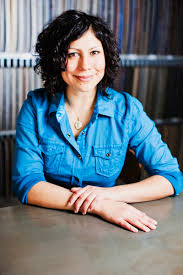
Melissa Vernon
By Nadine Gudz and Melissa Vernon
This post appeared in GreenBiz on March 23, 2012
Since early 2008, an intentional, global, and mostly internal dialogue has been going on to address the question of how Interface will accelerate its sustainability journey to meet our ambitious goals of zero environmental footprint by 2020. The company has accomplished significant milestones thanks to a passionate, driven team of dedicated individuals guided by Ray Anderson’s vision, but today we find ourselves just halfway to Mission Zero with eight years left to make good on our promise to eliminate any negative impact our company might have on Earth.
Many of our EcoMetrics that show such impressive cumulative accomplishments since 1994 have actually plateaued in recent years, and it’s understood that there is no more “low hanging fruit.” We are in the “tall canopy” zone and have been for several years.
It’s also understood that no one individual, team, or business unit can tackle the rest of our sustainability journey alone, nor can Interface. This journey is about redesigning our supply chain and reinventing commerce — which necessarily requires collaboration internally across multiple scales spanning individual roles, departments, business units, regionally and globally, and, of course, external collaborators.
Against a backdrop of global climate, economic, social and ecological destabilization, how do we continue to advance, accelerate no less, a bold mission and weather the storms?
This is not the first time Interface has found itself in uncharted territory on its sustainability journey and the one thing that is certain is that we will need to adapt and learn together. In fact, we believe that continuing to develop our ability to learn as an organization, even in the face of economic uncertainties, holds the key to achieving Mission Zero while growing our business globally.

Nadine Gudz – Interface
In the early days of Interface’s sustainability journey, the learning was fast and furious and one of the most effective initiatives was the QUEST program — Quality Utilizing Employee Suggestions and Teamwork. The goal was to eliminate waste but the process relied heavily on frameworks of organizational learning — team learning, systems thinking and shared dialogue. The cadence of meeting globally every six months kept the heat on to get results quickly.
In the face of the economic knockout combo of the Dot-Com Bubble, Y2K, and 9/11, the global aspect of our QUEST meetings was no longer funded and instead local QUEST efforts were relied upon to continue the good work of eliminating waste (resulting in $438 million in cumulative avoided costs to date). While the local QUEST efforts have proven to be effective, hindsight brings to bear the question of missed opportunities from sharing our local best practices quickly and effectively across our global operations.
Economic downturns continued to be an impediment to more consistent investment in organizational learning when in May 2008, we launched the Next Ascent Global Summit, to reignite the global aspect of Interface’s efforts towards accomplishing our 2020 goals and putting additional visioning into social sustainability. Designed using appreciative inquiry techniques and action learning frameworks, enthusiasm was created and new global relationships formed. But once again, the economic downturn in Fall 2008 resulted in budgets cuts and curtailed further work for global organizational learning.
We are left to wonder what the cost has been of all the stops and starts. To a certain extent, we end up reinventing the wheel in each economic cycle. What would be possible for Mission Zero if we designed a more resilient system for organizational learning that could drive rapid progress even in bad times?
Lessons from appreciative inquiry inspire us to reflect on the question: “When were we at our best?” Truly, we are at our best when we are pushing boundaries and creating the future, asking questions that haven’t been asked before (“How would Nature design a floor?” or “How does an industrial company become restorative?”) and seeking solutions that may not drive business results this quarter, but often become the basis of our future success.
A recent global brand survey found that even as our business expands globally (over half our business is now done outside the US), our company culture and sustainability mission are remarkably consistent. As leaders of the Global Organizational Learning team at Interface, our goal today is to carve out a focused, ongoing space for learning that connects the organization from place to place, in good times and in bad. Our team has the opportunity to plan for these cycles and avoid “one-off’s.” Ultimately, Interface believes Organizational Learning is a mindset — it’s the pathway to 2020 and beyond.
The Global Organizational Learning team was born out of our most recent (May, 2011) Global Innovation Summit to tackle the question “How do we spark global innovation to accelerate progress on our Mission Zero Journey?”
Employees from across the globe were asked to share their insights on how and where to innovate, explore ideas and solutions to achieve the company’s sustainability vision. The feedback collected to date indicates that we need to become better communicators, collaborators and learners, not just within our global business, but in partnership with external stakeholders.
We have been able to ride past successes and existing relationships, but it became apparent that we had retreated to siloed business unit structures. Cross-organizational learning efforts were isolated to specific supply chain or product related issues such as a global yarn team and a global carpet backing team.
True to the historical pattern, business slowed down again following the Summit (we seem to have stumbled upon a leading economic indicator). Belt-tightening has ensued, but this time not at the expense of Organizational Learning which was one of six global teams funded to continue the exploration of Global Innovation at Interface. Perhaps we are indeed learning.
Ray’s epiphany was a gift. It was the beginning of a powerful, shared story. It was an invitation to participate in an unprecedented journey to transform outdated notions of the industrial enterprise. The journey itself is ever-changing as it adapts to changing environments.
The world is a very different place from how it was in 1994 when Interface began its “mid-course correction”, and it will be an entirely different place in 2020. As Interface continues to evolve, it will likely undergo additional course corrections — perhaps some more subtle than others.
We are hopeful that these course corrections will be more easily facilitated as Interface develops its organizational learning capacity and velocity. As Interface learns its way into the future, not only will the business enhance its capacity for innovation, but just as importantly, for resilience.
